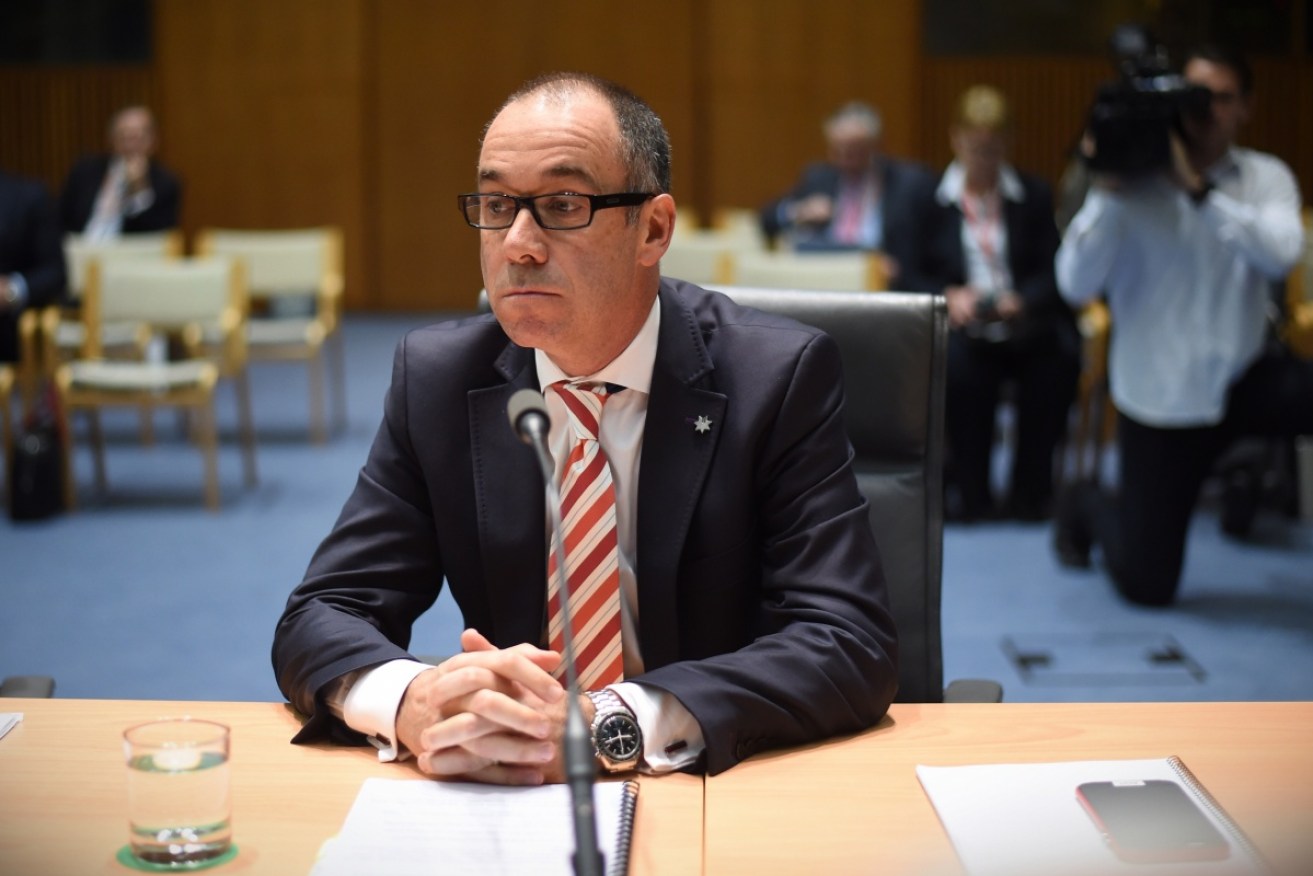Bank bosses hauled to Parliament again, credit cards in crosshairs

NAB's Andrew Thorburn will face the committee on Friday. Photo: Getty
Big bank CEOs and lobbyists will face a second round of parliamentary grilling on Friday, with their uncompetitive deals on credit cards set to be a big issue.
The first round of public hearings in October last year did little to quell voter appetite for a bank royal commission: Newspoll found 64 per cent support, and ReachTEL 66 per cent, in polls conducted in February.
Nor did it stem the flow of scandals and discontent. Just this week, the Commonwealth Bank was accused of whitewashing allegations of unpaid or underpaid life insurance claims.
Another furore, sparked by ANZ breaking ranks to cut its card rates, is the concern that customers are still getting ripped off on credit cards – a topic the Coalition, Labor and the Greens may raise.
NAB chief executive Andrew Thorburn and chief operating officer Antony Cahill will front the Standing Committee on Economics in Canberra from Friday morning. CBA and ANZ will then appear on Tuesday, followed by Westpac and the Australian Bankers Association on Wednesday.
Liberal MP David Coleman, chair of the committee, has flagged the Coalition members will focus on how the banks and the industry as a whole have responded to issues raised last year.
The high rates of credit card interest charged by the big banks was one of these issues.

The average bank card rates are much higher than their competitors.
Data supplied to The New Daily by comparison website RateCity shows that if you signed up for a low rate card with a big four bank, you’d be charged roughly 16 per cent interest — compared to an average of 12 per cent anywhere else.
At the end of 2016, Australians had 16.6 million credit cards with an average balance accruing interest of about $2000.
Using ASIC’s calculator, and assuming you repaid $100 a month, it would take two years and $307 in interest to repay that balance at the big four banks – a full month and $88 more than anywhere else.
The latest Reserve Bank figures show that cardholders paid $1.5 billion in fees in 2015, up 6.6 per cent on the year before, on a total of 2.2 billion card purchases (valued at $292 billion) and 26.5 million cash advances ($9.9 billion).
Consumer advocacy group CHOICE, not satisfied with ANZ’s “tokenistic gesture”, has called for further reform.
CHOICE said its review of card cancellation policies at the big four banks found consumers still had to call or email to cancel their cards, rather than being able to do so online. These are deliberate “go slow” policies, it said.
In a letter to the committee, ME bank supported the call for easier cancellations, and also argued that banks should be forced to:
- Advertise comparison rates for credit cards alongside the headline rate in marketing materials to make it easier for customers to compare;
- Raise minimum monthly repayments above the current 2 per cent, which can lock customers into a cycle of revolving debt; and
- Stop offering credit limit increases.
The committee’s deputy chair, Labor MP Matt Thistlethwaite, said the second round of hearings will prove “it’s business as usual in the banking industry” and that only a royal commission will force real change.
He confirmed credit card rates will be an area of interest for the committee.
“We’ll demonstrate that scandals in banking continue, staff continue to be pressured into selling products that aren’t in the customers’ best interests, and the executives keep getting paid more and more,” he told The New Daily.
“There are 15 inquiries into the banks going on at the moment, both in the Parliament and outside. Wouldn’t it just be better if they agreed to a royal commission?”
Labor committee members will draw attention to the recent Sedgwick review, commissioned by the banks themselves, which quoted a string of workers who alleged they were pressured to sell products customers didn’t need, Mr Thistlethwaite said.
Labor will also raise executive remuneration, after revelations CBA’s Ian Narev pulled in $12.3 million in the 2015-16 financial year.
The Greens committee member, Adam Bandt, told The New Daily he hoped to hear the banks discuss credit cards, the “big and looming risk” posed by their heavy exposure to the housing market, and whether they are taking climate change seriously.
“After the last hearing, I’m still not convinced the banks get it.”








